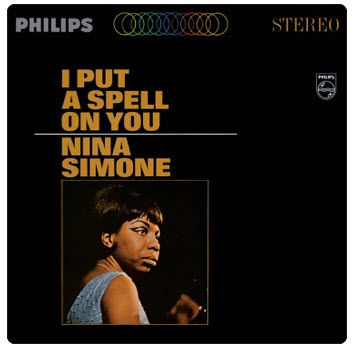
None other than Frank Sinatra admitted he had learned a great deal from listening to Billie Holiday. He revered her phrasing, her timing, and her ability to connect with an audience.
Billie Holiday was a prostitute before she became a singer, and a junkie after she became a singer. A lot of people held those two circumstances in judgment of her and many of those who admired her music while she was alive discriminated against her because she was black. Billie was quite clear about all of this in her celebrated autobiography Lady Sings The Blues. She put the emphasis on the word “Lady” herself, for very good reason. She knew she was one of the finest singers who ever drew breath. You see, the very best musicians told her so for a very long time, and wanted to keep working with her even after her voice had lost its prettiest qualities. What she had till the end was timing and a sense of the musical phrase that made you want to hear her sing the song again and again.
None other than Frank Sinatra admitted he had learned a great deal from listening to Billie Holiday. He revered her phrasing, her timing, and her ability to connect with an audience.
Here in Billie‘s own words in 1956 is an account of the first time she sang in public, on a cold winter night during the Depression when she and her very ill mother had received an eviction notice. They were given a few hours to come up with the rent money. It was either the street or the saloon, and for the first time she chose the saloon. She begged for a dancing job, but the saloon keeper soon saw that she was a terrible dancer. The piano player took pity on her and said, “Girl can you sing?”
“So I asked him to play “Trav‘lin All Alone”. That came closer than anything to the way I felt. And some part of it must have come across. The whole joint quieted down. If someone had dropped a pin, it would have sounded like a bomb. When I finished, everybody in the joint was crying in their beer, and I picked thirty-eight bucks up off the floor. When I left the joint that night I split with the piano player and still took home fifty-seven dollars. I went out and bought a whole chicken and some baked beans . . .” (From The Picador Book of Blues and Jazz, edited by James Campbell)
In the twenty-first century we have accepted for the most part that a good deal of the musical talent, the interesting street language and the compelling fashion trends come from the black community. People under thirty have very little understanding of what a significant revolution such acceptance constitutes. In recent years we have had a black President of the United States, we have had Oprah Winfrey as the uncrowned Queen of the western world, and we have seen Kanye West on top of the music charts. Revolution, without violence for the most part.
We owe an everlasting debt to Billie Holiday, who struggled and died alone in Bellevue Hospital, which is the place in New York where people end up when they have nowhere else to go. The recording of the tune “Comes Love” came late in her career. Joni Mitchell thought enough of this song to record it in 2000 on Both Sides Now. Helen Merrill, Ella Fitzgerald, and many others have also recorded it over the years. It is a simmering, smoky, lyrically witty tune. When Billie recorded it, she was into her forties and would be dead within two years at the age of 45. Here are a few illuminating words from James Isaacs, who wrote the liner notes for the Verve compilation of 1992, a 10 CD set entitled Billie’s Best, assembled more than thirty years after her death.
“There are those that aver her voice, never a magnificent instrument but always a strikingly honest one, had by the Fifties, lost the new-penny shininess of the Thirties and the woody warmth of the Forties. . . Though she knew these numbers inside and out, Billie Holiday continued to uncover new shadings, nuances, and meanings. What she may have lost vocally is more than offset by the feeling we gain.”
“Comes Love” features a small and brilliant combo of Harry “Sweets” Edison on trumpet, Ben Webster on tenor sax, Jimmy Rowles on piano, Barney Kessel on guitar, Red Mitchell on bass, and Alvin Stoller on drums. The trumpet is a particular delight on this number and I love the way it breaks in while Billie is singing “nothing can be done.” Billie often said she tried to sing like a horn. The guitar playing is, well, superb. The entire performance is an intimate tribute to the way music used to be written and performed, with the vocalist supplying colour, feeling, drama, and no more lyric content than necessary. The writing of the song dates back to 1939, and this production to January 4, 1957, but Billie sounds as current as though she were singing live in some wonderful saloon today.
If this is your introduction to Billie Holiday, there can be no better.



